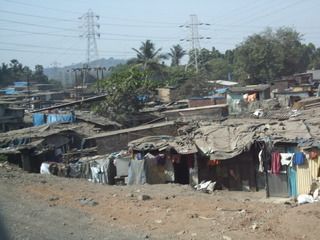© Harish Jharia
What is Foreign Direct Investment, FDI..?
As far as I have understood, FDI is direct investment of money by a foreign company, in the production sector or in retail business in any host country. This investment of capital would be either by buying a company in the proposed country or by expanding operations of any existing foreign business in that country. Foreign direct investment is made with many facilities to the investor like advantage of cheaper wages, tax exemptions offered by the host country as an incentive to gain tariff-free access to the markets.
Foreign direct investment should not be confused with ‘portfolio investment’ which is a passive investment in the shares / securities of another country such as stocks and bonds; basically meant for earning forfeits without opening offices, factories, shopping complexes and generating employment for the local masses in the host country.
Miserable condition in India without FDI:
India is one of the poorest countries in the world. India is one of the most corrupt countries in the world. India has few of the richest individuals in the world and at the same time India has millions of the poorest individuals in the world most of whom do not have clothes to cover their bodies, do not have shelters on their heads and who die out of starvation. There are reports in the media that poor starving villagers in Bundelkhand and Orissa had resorted to eat grass-seed flour and roasted rodents for filling up their bellies.
Millions of tons of precious food grains are rotting directly under the sky and rains in the open-air warehouses of Food corporation of India. There are almost no warehouses provided for the harvested grains in the agricultural villages in India. Such absence of agricultural infrastructure, results in rotting of the food grains, due to untimely rains, either in un-harvested condition in the fields or in stored state in the open fields. Millions of tons of food grains are perished just because of absence of basic infrastructure in the rural India.
In the high altitude Himalayan stats like Jammu Kashmir , Himachal Pradesh etc thousands of tons of apple and other fruits are thrown away in the valleys in absence of fruit processing industries and proper cold storage warehouses in those areas. Similarly vegetables like tomato, onion and potato are spoiled in absence of proper storage infrastructure in different parts of India.
The funds and resources approved by the central government if India and various state governments do not reach the rural poor citizens of India and the backward interior areas. As a result of the same it has been proved that the current government machinery functioning in India has failed to prove its worth by benefiting the farmers, producers and consumers of India. Therefore, it the high time to try foreign investment and financial management of the funds invested in this sector by dependable and honest organizations and individuals.
How FDI is beneficial for India..?
Indian Parliament discussed about acceptance of Foreign Direct Investment FDI on 5 December 2012, followed by voting for and against its acceptance by the government of India. In spite of the fact that the majority of the members of parliament, MPs, were against the concept of FDI, nevertheless, the result was just other way round. The proposal of FDI was accepted after voting by the MPs.
The proposal for acceptance of FDI was accepted in the Lok Sabha, with 254 votes for FDI and 224 votes against it. The entire drama played in the lower house of Indian Parliament was more a political exercise and a number-game rather than a landmark trade & economic resolution passed in the largest democracy in the world.
In spite of the above, let us enumerate the benefits of FDI for India in the following points:
- Common people of India will be benefited the most because the prices will come down to the minimal and there will be ample supply of essential commodities in the market.
- With the introduction FDI the prices of essential commodities will be reduced to the minimal; because, the commissions charged by at least 3-4 stages between the producer and the retailer will be completely eliminated.
- Similarly, the bribery by government servants and political authorities will be checked.
- The farmers and producers of the products will get better and adequate price for their items sold to the merchant agency.
- The poverty will be checked in the rural India because the farm laborers and skilled workers will get employment and have job security.
- The villagers will not die of starvation and will not commit suicide because of poverty and indebtedness.
- Agricultural infrastructure like cold storage, warehouses, protected go-downs etc will be provided and loss of products would be checked and eliminated thereby the resultant yield of the country will be enhanced.
- Food processing industries will be built with the help of foreign investment and the wastage of fruits and vegetables would be checked effectively.
npad






